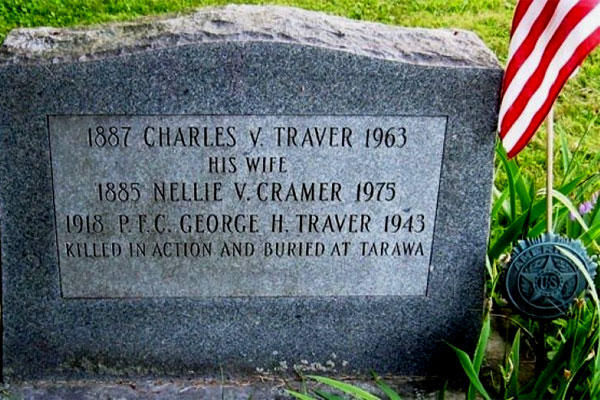The remains of a U.S. Marine killed in a World War II battle in the Pacific nearly 73 years ago have been identified by military officials, using dental records and a Boy Scout pocket knife.
Pfc. George Traver's mother sent him the knife after he joined the Marines in 1942, WNYT-TV reported Friday. He had it on him when his remains were found in May 2015, buried in a mass grave on the island of Tawara in the South Pacific.
"When we got the report back from the recovery team one of the artifacts that they found on him was a knife," nephew George Traver, of Chatham, N.Y., told the station. "And the description of it was a 3-inch or a 4-inch knife blade, bone case covering and a Boy Scout emblem on it. So it was almost like he carried something that meant something to him so much and mentioned about being home."
Traver was killed on Nov. 20, 1943, the first day of the battle to capture Tarawa from the Japanese. Over several days of intense fighting, about 1,000 Marines and U.S. Navy sailors were killed and more than 2,000 were wounded, according to the Department of Defense.
The mass grave contained the remains of 35 fallen members of the U.S. Marine Corps; it was discovered by the Florida-based group History Flight.
"His mother lived to be 90 years old and, right up until her dying day, she was hoping to hear something about George and get him back," relative Al Wheeler told WNYT. "She tried and tried. Never happened."
The family is now planning a second funeral for Aug. 28 in Chatham; the first one, planned in 1944, was called off when Traver's remains were not found, the station reported.
The headstone in the Chatham Rural Cemetery reads: "Private First Class George H. Traver 1943, killed in action and buried at Tarawa."
George Traver said the upcoming funeral service won't be only about his uncle.
"This is for all the other families that have lost their men," he told the station. "And I think if my uncle was here, he'd say the same thing."
The Associated Press contributed to this report.
Related Video:
Semper Fi Always Faithful





























